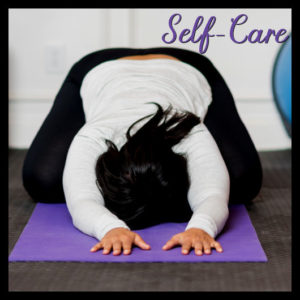
Life with MCAS can be daunting, and one of the hardest things is managing diet. For one thing, everybody with MCAS will have different needs. So many things can cause reactions but some days, one thing will be all right, and the next day, one bite will trigger reactions. Some foods are guaranteed to trigger reactions no matter what–but again, it will vary from person to person. For example, one bite of regular pork will be guaranteed to set me to itching immediately, but sometimes I can have bacon–not everyday but every now and then. Why? I have no clue. Chocolate causes a delayed reactions–mostly itching. I can’t handle a bite of ketchup, because it will start making me itch minutes after I’ve eaten it. Same with fresh tomatoes (which makes me terribly sad given tomatoes are my favorite food). However, once in awhile I can handle a few plain, canned tomatoes. But mostly, all of the foods that cause reactions I just stay away from because there’s no way of predicting which day I’ll be more reactive than others. In fact, I’ve been so reactive that I’ve had to take some drastic steps to start calming down the flare.
I’ve had to come up with ways to make food not be so important, which is difficult, given so many things in our culture are built around food. Most holiday gatherings, movie nights, date nights, so many things are geared toward special dinners and treats. So how do I handle this? (Please note: I am NOT offering any medical advice. I’m simply relating what helps me).

1: I’ve found–for myself–that I do best when I eat one food per meal. This means no full meals. Either a piece of meat, or a fruit, or maybe some vegetables, or a couple Chebe rolls (which are one of the few gluten free breads I can eat, given there are so few ingredients and they’re all safe for me). It also helps me keep my food journal, because it’s much easier to write down one food than a string of ‘what did I have for lunch’ thoughts. And I’ve noticed that I have fewer reactions when I eat this way.
I hated the idea of keeping a food journal, but I find it’s a good way to chart reactions, too, and my water intake. I use my stickers and washi tape to decorate it, and I just use a spiral notebook with each page one day.
2: I try to find things I enjoy that are pampering, yet not food. Like makeup and clothes. I’ve managed to find enough brands that I love and that are safe for me that I can enjoy putting on makeup, getting my nails and hair done, and dressing in new clothes (I buy ones I absolutely love so that every time I get dressed, even if I’ve worn the dress a number of times, I still feel special), and it takes some of the sting away from having to forego foods I love.
If you aren’t into fashion and makeup, then what do you love? Allocate some time for these things–like spa days (even spa-at-home days), facials, or maybe give yourself time to watch movies and Netflix or to read books or whatever it is that makes you feel special. You need to feel like you’ve still got pleasures in life, because as I said, when you have to remove so many foods, it can make you feel like you’re being punished. Which you aren’t–it’s just nature’s vagaries encroaching on your life.

3: Don’t forget your emotional and spiritual needs. Meditation can be a powerful force in life. Now, I’m not going to sit here and tell you that you can ‘heal’ yourself through meditation and the power of the mind, but stress takes an incredible toll on the body, and it can cause massive MCAS flares. I try to keep calm, avoid the news (which stresses me out), meditate (for me, this means listening and watching a particular channel on YouTube because the sound of running water, and the sight of nature calms me down and makes me feel at peace. And while I love action movies and spooky films, I have limited how many I watch like that because…yes…the suspense can cause the body to tense up and that precipitates adrenaline rushes which can cause…you got it…reactions.
4: Yoga. I miss being able to do more cardio, but cardio can trigger reactions and I have to be very cautious on how over-heated my body can get. But yoga–NOT power yoga, not hot yoga, none of those extreme forms, but gentle yoga is good for the body, it helps alleviate stress, and can tone the body just as well as a number of other exercises. Walking is also good, if you don’t trigger from being outside. If you’re a large woman, like me, I recommend checking out this site for wonderful vids on how to adapt the yoga asanas to a larger body, or if you have back issues and need to exercise in a chair.
 5: Sleep. I’ve learned the hard way that if I don’t get enough sleep, my reactions are a lot worse, I have less energy, and I’m not fit to handle the day. So, for example, this past week or so while I’ve had a cold, I’ve let myself sleep in every day until I wake up naturally. Because of the histamine dumps in the middle of the night, my sleep is always interrupted, so by sleeping in, I’ve given my body the extra rest it’s needed.
5: Sleep. I’ve learned the hard way that if I don’t get enough sleep, my reactions are a lot worse, I have less energy, and I’m not fit to handle the day. So, for example, this past week or so while I’ve had a cold, I’ve let myself sleep in every day until I wake up naturally. Because of the histamine dumps in the middle of the night, my sleep is always interrupted, so by sleeping in, I’ve given my body the extra rest it’s needed.
When you have chronic conditions, you have to rearrange your life in a number of ways, whether or not you like it, and it’s better if you just accept this as soon as you can because that means you’ll be taking care of yourself the way you need to. I know it’s hard to accept chronic illness/conditions, and it’s hard to accept changing parts of your life you may like perfectly well the way they were, but the fact is: things have changed, and while mourning the past is necessary and normal, it’s vital that you adjust your life to your new state of being.
What are changes you’ve had to make in your life to accommodate a new situation/condition? Did you have problems doing so or were you able to make those changes without regret?

